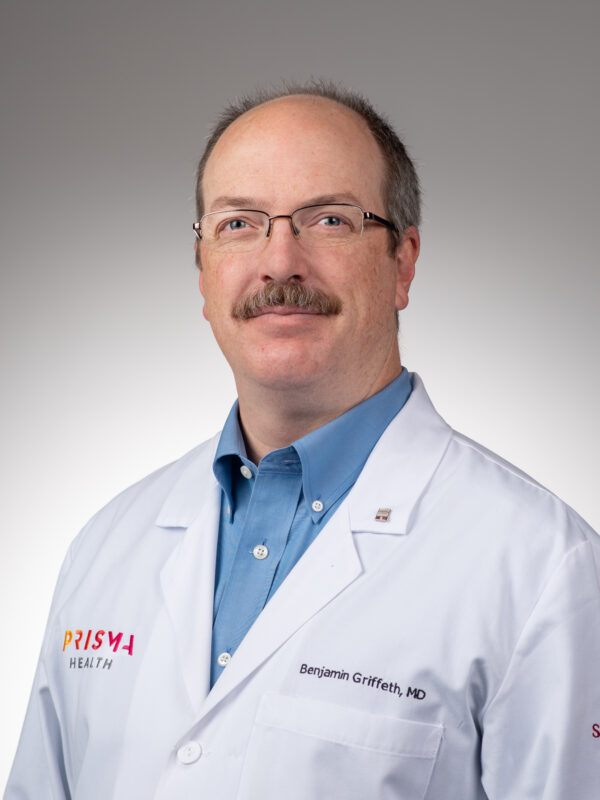The Fourth of July and PTSD in military veterans
In the United States, the celebration of our Independence Day takes place in big cities, small towns and everywhere in-between. Fourth of July celebrations might involve large get-togethers or big crowds, bright lights and lots (and lots) of fireworks. The holiday can be uniquely stressful for military veterans struggling with post-traumatic stress disorder (or PTSD), whether combat-related or not.
Benjamin Griffeth, MD, a psychiatrist and 24-year veteran of the United States Navy, offered some advice on what challenges military veterans may face during the holiday and how they can still enjoy time spent with family and friends.
Not all vets have long-term traumatic reactions
“Of those exposed to trauma, whether that’s a car accident, combat or another traumatic event, the vast majority will struggle with acute symptoms immediately after the event,” said Dr. Griffeth. “Less than 20% of those individuals will go on to develop PTSD, and even fewer will continue to have lingering symptoms.”
Dr. Griffeth also noted that support from loved ones, medical care and ongoing treatment by medical professionals who work with PTSD can be effective at mitigating those acute symptoms and lessening the duration of the problem.
For those with PTSD, the Fourth of July can be challenging
Thanks to ongoing awareness campaigns, more people than ever are aware of the potential issue with fireworks causing anxiety and irritable symptoms in veterans, especially those who have seen combat or been deployed in the past (including those with PTSD). However, fireworks aren’t the only challenge that the Fourth of July can create.
“For many veterans, large or loud crowds can be as challenging as the noise of fireworks,” said Dr. Griffeth. “The veteran may not want to be in front of a crowd, or within one. It’s common for people who find themselves anxious in crowds to stay to the edges or to keep as many people as possible within their direct line of sight.”
This may be enough to make them comfortable, but they may also need to take further steps to feel safe.
How to help a loved one with trauma history on the Fourth of July
“Every person is different, and every person’s needs to help them feel safe will be just as unique as they are,” said Dr. Griffeth. “But there are a few things that veterans and their loved ones can do that can provide some benefits.”
- Consider a long weekend away. Some veterans with PTSD find it useful to travel during the holiday weekend, staying in cabins or going camping where they won’t be close to fireworks displays and may be able to enjoy the view from afar.
- Understand your loved one’s anxiety. They may be more irritable or anxious than usual, express frustration or fear. Make sure they know you understand that their reactions are coming from a place of anxiety and do not necessarily reflect their feelings on any other day.
- Include them in plans – or ask if they’d like to stay home instead. When planning for a party or to head out to watch the fireworks up close, ask your loved one if they would feel comfortable coming along, or what else they might want to do on the holiday.
- Ask the neighbors if fireworks are part of their own party plans. If you’re aware fireworks are coming, it may be easier to handle them. Just being prepared can often help minimize the effects.
- Block out the flashing lights. If the fireworks are a problem during the holiday because of the constant sudden brightness, pick up a set of black-out curtains, available at most home goods stores. They will block out those unwanted, abrupt flashes of light.
- Breathing or mindfulness exercises may help. For some, taking slow, deep breaths or trying the “5-4-3-2-1” trick (name five things you can see, four things you can touch, three things you can smell, two things you can hear, one thing you can taste) can work to ground you in the here and now.
“There’s no one single piece of advice that works for everyone,” said Dr. Griffeth. “Every veteran’s way of handling the trauma will be unique to them. It’s always important to seek care if you are struggling with symptoms of PTSD. Treatment can help you to understand what coping mechanisms will be most effective for you and start you on the road to feeling better with time.”
Veterans suffering from PTSD can also call the Veterans Crisis Line at 800-273-TALK, then press 1, or text 838255. You can also call the SC Hopes support line at 844-724-6737 at any time of day or night, which will connect you with experienced mental health and addiction counselors.
Find a doctor
Whether you’re looking for a primary care physician or need to see a specialist, we’re here to help with experienced, compassionate care near you.
Find a Doctor

